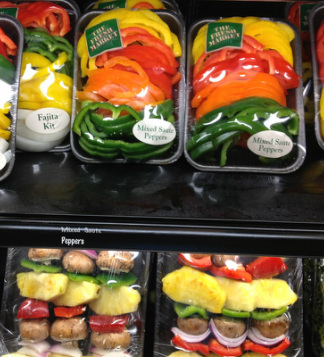| It was not difficult for the original audience of the Torah to understand that this is a time of year for expressing gratitude. For people whose lives depended on the harvest, the idea of calling this season, Z'man Simchateinu, "The Time of our Rejoicing," did not rquire any explanation. This was the time of year that brought reward for all their work in field and pasture. Understanding that joy is harder for us. Few Americans today plant or gather crops to ensure that their families have enough to eat. Yet, we are just as dependent on the cycle of seedtime and harvest to stay alive as were our ancestors. |
My recommendation for a joyful Sukkot is simple. Don't just sit in your sukkah eating processed foods and diet soda. This Sukkot, make a point to eat real foods made from real ingredients. (Here's a hint: If you can't pronounce it, it's not real.) This is, after all, a harvest holiday. Make it an opportunity for you and your family to know where your food comes from. Go to a farmer's market, join a CSA, give up the packaged food aisle for a week and, instead, eat foods that you can actually trace back to the earth that we celebrate at this season.
Use this holiday as a time to remember that there really is nothing convenient about "convenience foods" once you take the consequences into account. Rampant obesity, diabetes, heart disease, cancers, infertility and God-knows-what-else are too high a price to pay. To make matters worse, forgetting where real food comes from is just another way of forgetting where we come from and the source of our plenty.
I wish you a chag sameach, a festival of joy that is also a festival of health, mindful eating, connection to what is real, and gratitude toward its source.
Other Posts on This Topic:
Sh'mini: Eat. Pray. Kashrut.


 RSS Feed
RSS Feed
